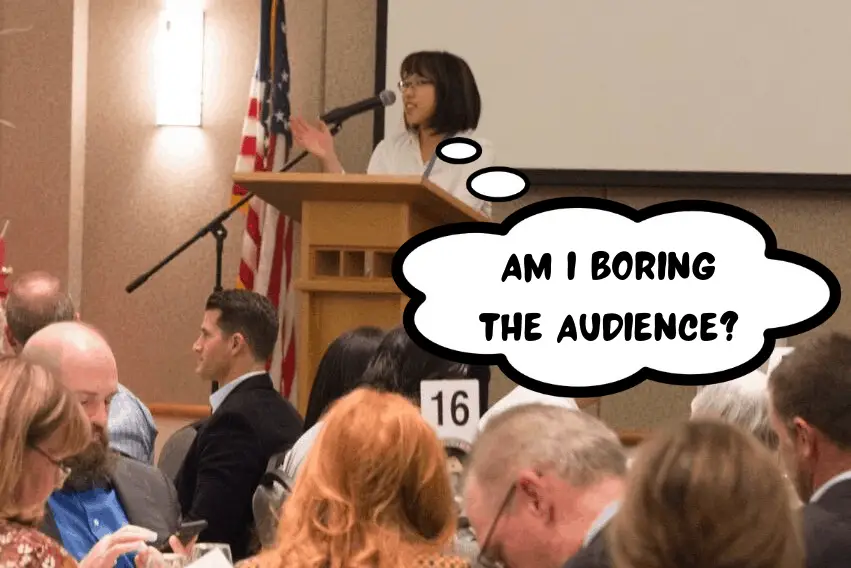
Posted: December 9, 2020
When you have social anxiety, it feels like a surveillance camera tracking your every move. It will alert people when you’re acting strangely. They’ll start shunning you. Soon, you’ll be all alone as society’s outlier. Social anxiety creates these negative, vivid, disheartening thoughts. They are all a powerful illusion.
Social anxiety disorder (SAD, not to be confused with seasonal affective disorder), or social phobia, is a relatively common mental illness; in the United States alone, 15 million adults have it. Shyness or insecurities about a normal pressuring situation, like public speaking, aren’t enough to classify as social anxiety. At its essence, social anxiety affects a person deep to their core.
People with social anxiety constantly worry about others judging them on countless behaviors, both substantial and mundane. They become extremely self-conscious of their words and movements while in a social setting.
Table of Contents
Mental Symptoms
Because of social anxiety, it can be more difficult to…
- Make friends
- Have conversations with anyone, including friends and strangers
- Speak aloud in a discussion
- Engage in public speaking (this common fear is amplified)
Even if the person does not need to speak, social anxiety can still affect their behaviors and thought patterns.
- They may be super critical about their own presence in a public setting. Being present with other passersby is enough to trigger the social anxiety. They don’t even have to be in the center of attention to feel anxious (although that can trigger it, too).
- They watch their own behaviors, making sure that they are “normal” so that other people won’t judge them for being weird.
- They worry that people will see right through them- they will know how socially anxious you are.
- They can overanalyze their previous social interactions and try hard to find any mistakes.
Social anxiety could render a person…
- Depressed
- Stressed out
- Easily embarrassed
- Lonely
- To experience low self-esteem, self-blame, and feelings of being substandard compared to everyone else
- To believe in the illusion that their abilities and character are never enough for this world
- To react to other people’s criticism as if the target is about themselves as a person
Shyness?
Just because one has social anxiety does not mean they are automatically shy. For example, despite the fact that I have social anxiety, I am not a shy person, by nature. I consider myself a talkative extrovert. It’s the shameful, self-critical thoughts in my head that make me socially anxious.
Simply put, some people with social anxiety are shy, some are not.
Personal Examples
When I’m speaking aloud, let’s say, in a discussion with my college English class, my social anxiety will kick in. As I raise my hand to speak, my social anxiety begins feeding me with bothersome thoughts, such as, “Don’t bother! Keep your opinions to yourself.” But I still leave my hand up because I really want to speak. When the teacher calls on me to speak, my thoughts morph. During and after speaking, my socially-anxious brain demands inside my headspace, “Stop contributing to the discussion. You can’t let people know how fucking stupid you are.”
GREAT, now I am feeling so anxious while I’m talking in front of everyone. So, I try to deep breathe as a coping mechanism, but my brain has to butt in again: “Damn. You’ll look like an ugly fish. Your breathing noises will be too loud. I guarantee people will notice your anxiety. You’ll look like a weakling in front of everyone!”
There’s no need to speak for the social anxiety to appear, either. Let’s say I am walking around my college campus. If I look around and observe my surroundings on the street, my brain gets all self-conscious on me: “Stop doing that! People will think you’re a weirdo for looking around so much. And if they believe you’re staring at them, they’ll mistake you for a pervert. If not that, people will simply suspect you’re up to no good.”
If THAT’S not enough, my brain demands even more: “Play it safe. Conform with the rest of the students by looking straight ahead or down at your phone.”
All these socially-anxious thoughts make my low self-esteem hit rock-bottom. I experience an onslaught of negative feelings. It seems like everybody is finding every which way to judge and oppose me.
In my attempts to be social, my social anxiety tells me, “You’re such a dumbass for trying! Why bother?” If I try too hard to be open in my conversations, more illusionary worst-case scenarios fill my brain: “What if you accidentally say something mean to other people? You try so hard, but you can’t help it: you tend to have shitty stuff coming out of your mouth.”
I also feel like an outlier in established groups (such as a school club), as if everyone wants to leave me out. I’m only there to be that awkward sore thumb in the room. I especially feel offended and undeserving if a new person I come across, especially in a group I just joined, doesn’t welcome me or say hello.
My brain’s social anxiety is an overprotective mental mechanism. It doesn’t want people to misconstrue or look down on me, so it exacerbates my fear of social settings.
These thoughts coming from my own brain are so toxic!! I have left many mundane conversations and Zoom meetings in tears.
Physical Symptoms
They manifest as the typical symptoms of anxiety, including trembling body parts, an upset stomach, a rapid heart rate, rapid breathing, and sweat.
Based on my experience, face blushing is a symptom exclusive to social anxiety. I only experience the heat radiating from my face when in social situations.
How I Treated My Social Anxiety
Since my social anxiety has been left untreated for many years, it exploded in early 2020 (unrelated to the COVID-19 pandemic). Most meetings, in-person or virtual, have left me feeling depressed.
I was in such a broken state that I virtually visited my therapist for OCD (obsessive compulsive disorder), the first time in two years. He concluded that I also had social anxiety. Ugh, like I needed another mental illness to deal with! But I had to accept that fact for myself if I wanted to move on with treatment.
Because my therapist specialized in OCD and not social anxiety, he left me with relevant third-party recommendations, including an online course and books.
After finishing the book, Essential Strategies for Social Anxiety by Alison McKleroy, I’ve realized that although the spectrum of mental illnesses is vast, you can use the same therapeutic techniques to help you cope, heal, and reclaim your life.
For example, some techniques I’ve been using for my OCD would also work with social anxiety. You can use cognitive behavioral therapy (CBT), exposure and response prevention (ERP), acceptance and commitment therapy (ACT), and mindfulness and meditation. Prescribed medication is also an option and is up to you. However, the techniques are the long-term solution.
Cognitive behavioral therapy (CBT)
Your job with CBT is to recognize your thinking errors and flip them around with realistic positivity. For example, filtering is a common thinking error of mine that comes up against my will. Recently, I was doing an Instagram Live interview with a content creator. I did well except for one short fumble in which I messed up my sentences and didn’t make much sense. During and after the interview, my brain told me, “You screwed up the whole thing with that one fumble!” It filtered out all the good parts about it, like how clearly I spoke for most of the interview.
The untrained mind would fall for this thinking error, believing it to be true. Self-esteem would crash and emotions could run even higher. But using CBT, you know it is a thinking error, so you should do your best to counter it with a positive reality. Using the interview example, I would tell myself, “It’s human for us to make mistakes. You’re not a special case. Besides, you already did a great job with your interview. This isn’t your last one either. You’ll have even more chances to improve your interviewing skills later on.
Exposure and response prevention (ERP)
ERP is a type of CBT in which you face the situations that trigger your anxiety. You show up instead of shunning away, which would only increase your anxiety in future situations. It may be uncomfortable and nerve-wracking in the beginning to face your fears, but in the process, you train your brain that you can deal with all this and stay grounded in the moment. Nothing about that situation or anxiety was as bad as your brain had imagined.
It would be best to start with small, more manageable exposures. For example, if I wanted to be confident with speaking in front of an interviewer’s large Instagram Live audience, I could begin by speaking Live with my friends. Once I realize that it wasn’t so bad, I could move on to a larger group until I reach my ultimate goal.
Acceptance and commitment therapy (ACT)
ACT is like looking outside of your brain as your most pure, wise self. Doing that helps you properly react to the negative thoughts. Rather than falling for its contents and suffering so much, you’d see the thoughts for what they truly are — thoughts and nothing more!
You cannot control the negative thoughts and their resulting emotions and feelings by stopping or suppressing them. Not only are these attempts futile, they also worsen the severity. As a result, it all boils down to noticing that these annoying thoughts in your mind are present in your consciousness. You accept that fact. Then, you can remind myself of your life’s values, such as using your time for productive, happy things. At that point, it’s time to move on and fulfill them.
Let’s use the Instagram Live example again. I remind myself of my personal values, such as compassion and open-mindedness. Although I’ll still experience a fear of going live, I can hang on to these values to lead me through the social life I want.
Mindfulness and meditation
Mindfulness means being fully present in the moment, not the past or the future. You have heightened awareness of what’s around you. For example, you feel the floor under your feet or the flavors of your lunch instead of getting caught up by thoughts in your head.
Meditation is the actual practice that will help you be mindful. The most common way to meditate is to be aware of your breathing. You’ll stay more grounded, despite the annoying thoughts in your head.
Being mindful and using meditation will help you concentrate and be more present for your body and mind. You’ll be trained to recognize your social anxiety’s negative thoughts much quicker.
With plenty of tools you can use to deal with social anxiety, how will you know what’s right for you? Try each one out and see what works and what doesn’t. Whether you use one, several, or all, the only thing that matters is that you get relief from your social anxiety and enjoy social interactions.
Be flexible. For any situation, pick the technique(s) that seems the most appropriate.
I prefer ACT and mindfulness/meditation, but I will also use CBT when I believe it’s necessary. For example, I may use the former as gentle tools to calm myself down before an Instagram Live and stay grounded to my values and intentions. After the Instagram Live, I might feel shitty and stressed out for one stuttering mistake. So, I pull out another tool at my disposal: CBT will help me realize how it’s my brain’s uncontrollable thinking error, nothing more. Then, I use mindfulness/meditation again to bring me back to the present.
***
Having social anxiety sucks. Humans are social beings, by nature.
Fortunately, it is treatable. These days, I experience more enjoyment in my social interactions. I remind myself that simply because me and the other person showed up to be present for each other to communicate, it’s a wholesome part of being human. With the dedicated mindset of overcoming this mental illness and your large toolbox of coping techniques, you can become more socially comfortable.
If you have social anxiety, you are not alone.
I believe in your tenacity to cope and will look forward to watching you get your social life back!
It would be ideal to find a therapist trained in those techniques to help you one-on-one. But also use the following books to guide you throughout your recovery journey.
Essential Strategies for Social Anxiety, by Alison McKleroy
This short book guided me through my treatment of social anxiety. It equips you with a toolbox of techniques, including CBT, ERP, ACT, and mindfulness/meditation. For each technique, there are step-by-step exercises. With enough practice, you’ll find yourself enjoying social interactions, not avoiding them. This book gives you the motivation to conquer your stubborn social anxiety!
Buy on Bookshop | Buy on Amazon
The Shyness & Social Anxiety Workbook, by Antony and Swinson
If you like an interactive experience, grab your pencil and this workbook! You’ll read about shyness, social anxiety, and techniques to deal with them, as well as write down your responses to their prompts. Writing stuff down always helps you put your specific thoughts and reflections down. You’ll get a better glimpse of what you’re experiencing and learning.
Buy on Bookshop | Buy on Amazon
The Mindfulness and Acceptance Workbook for Social Anxiety and Shyness, by Fleming and Kocovski
This interactive workbook is dedicated to the practice of ACT. Like the above book, you’ll switch between reading the material and writing your responses. The writing breaks are a good way to process the information and reflections based on your own experiences with social anxiety and/or shyness.
Buy on Bookshop | Buy on Amazon
Overcoming Social Anxiety: Step by Step, by Thomas A. Richards
Dr. Richards runs the only treatment center in the world that specializes in social anxiety. This book serves as a self-help version of his online therapy. He writes differently from other therapists. His prose and sentence structure is poetic and beautiful. This book focuses on CBT.
Note: If you live in the US or UK, please make the ethical decision choosing Bookshop. You’d be helping small, independent bookstores survive. You’ll still get your books shipped quickly. As a bonus, some books are priced slightly lower than the MSRP.
Pin to save this post for later, and share it with others!
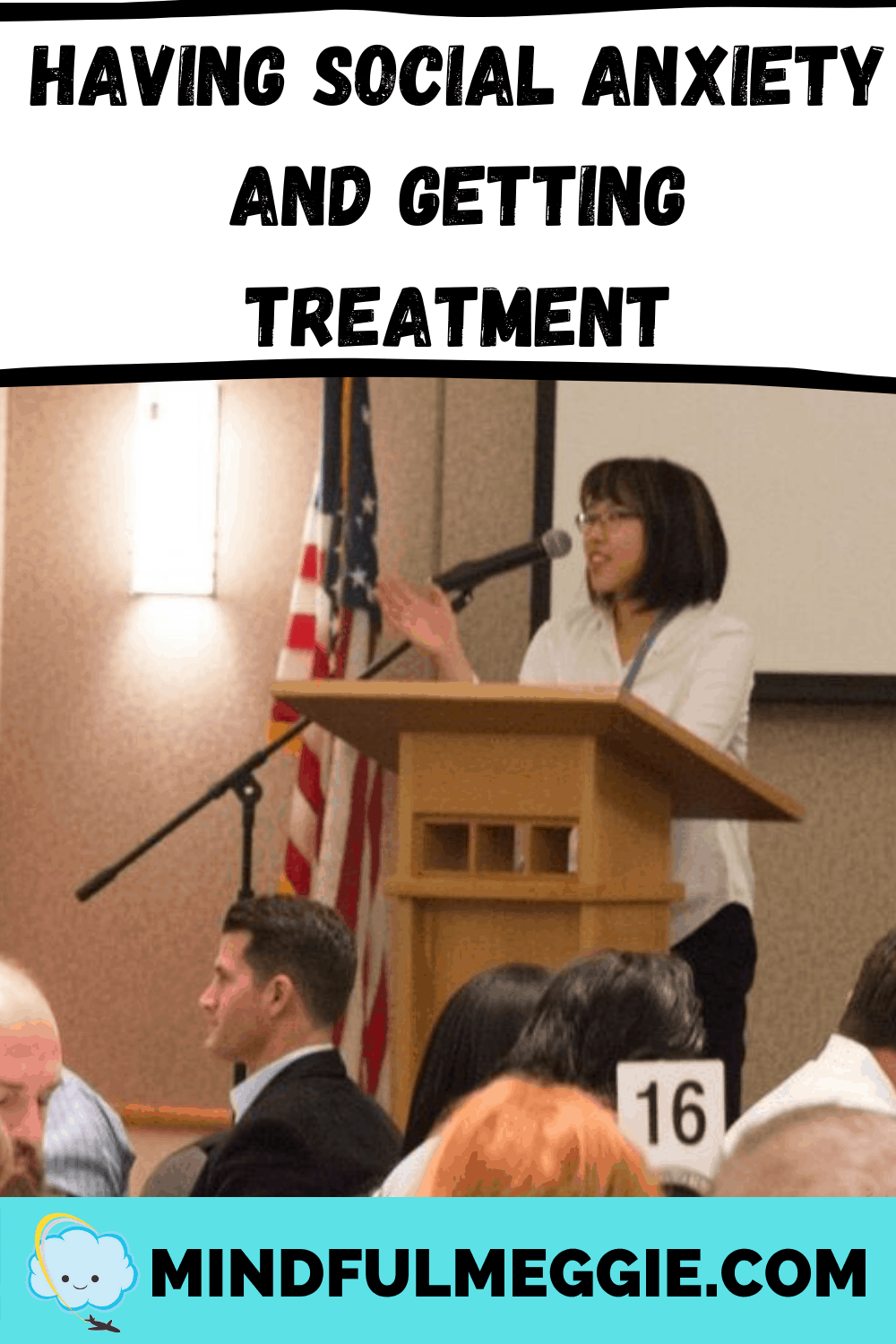
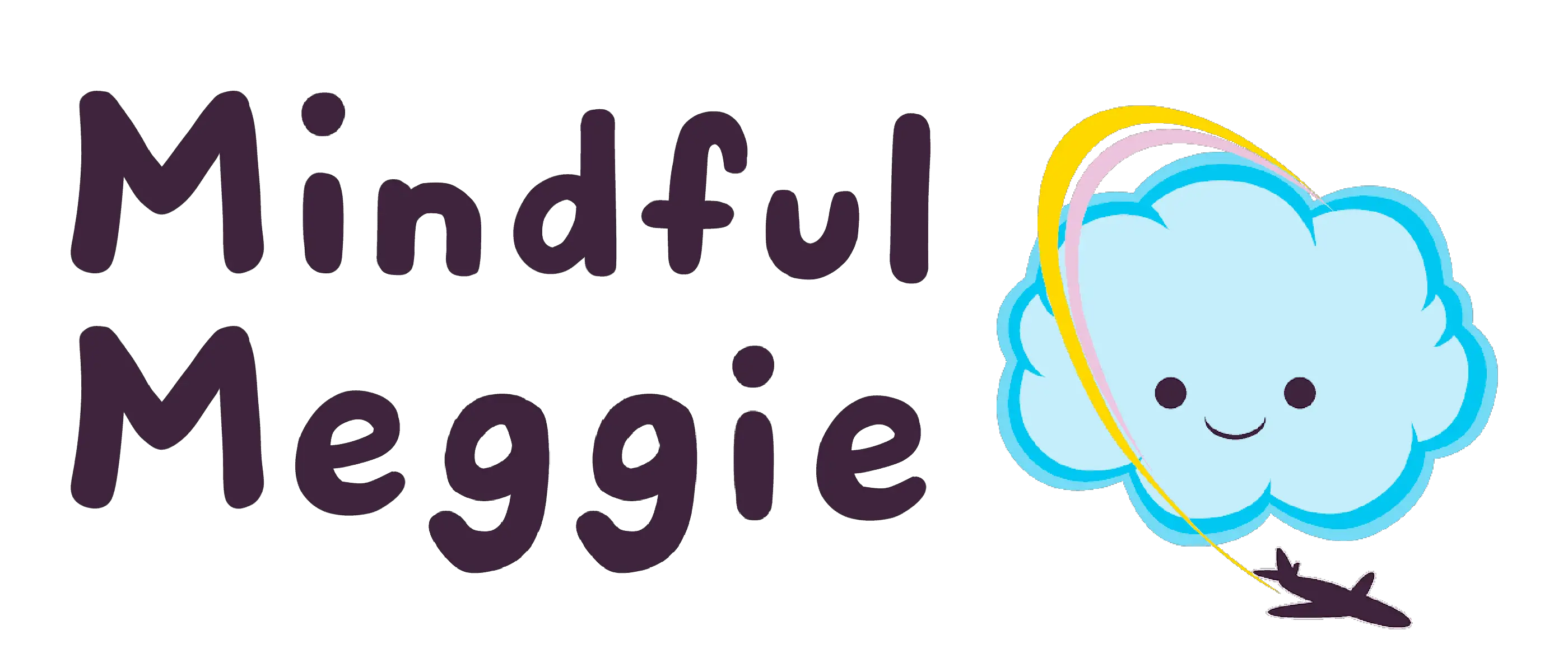
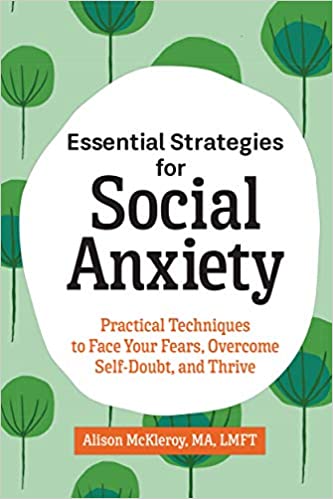
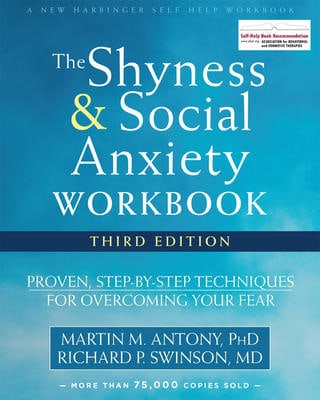
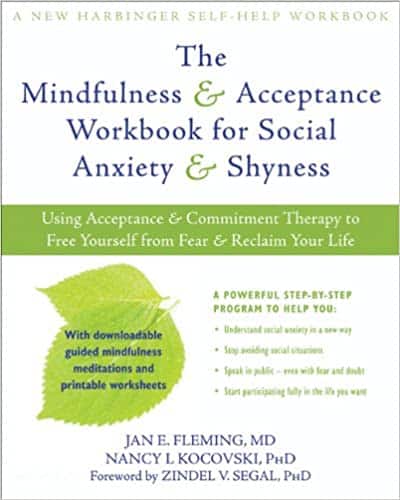
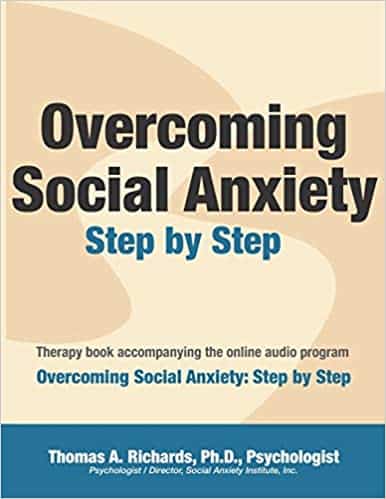

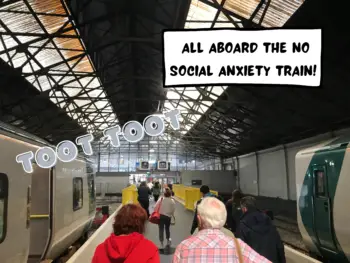
 21 Signs You Became a Traveler Before Turning 21
21 Signs You Became a Traveler Before Turning 21
Hey! I am also an Asian American with ocd and social anxiety. I also have a therapist for ocd, but I am confused on my journey now with social anxiety. Does the books by itself help, or do I need a specialized therapist?
Hi Max! Books are a good start, but I would recommend going to a specialized therapist if you can afford it. Sometimes, the books can be too general. A therapist would know your condition and story, and would be able to help you best with your condition(s).